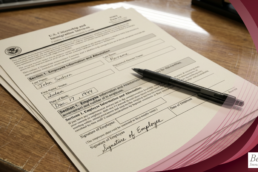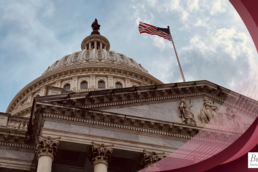Since 2013, a growing number of states have been issuing driver’s licenses to undocumented workers. New York and New Jersey have recently joined the list that includes California, Colorado, Connecticut, Delaware, Hawaii, Illinois, Maryland, New Mexico, Oregon, Nevada, Utah, Vermont, Washington, and the District of Columbia.
The “Green Light Law” has recently taken effect in New York state and allows all New Yorkers, ages 16 and up, to apply for a driver’s license regardless of their citizenship or lawful status in the United States. Following this, the Trump Administration has decided to conduct “a department-wide study of the effects of issuing state driver’s licenses to undocumented immigrants.” A DHS spokeswoman said the study (and possible litigation) is about national security, because these laws “make it easier for terrorists and criminals to obtain fraudulent documents.”
Most of the states that are issuing “driving only” licenses have large populations of undocumented immigrants. Some state legislators have noted that this will contribute to local economies. The thinking behind this is that if undocumented immigrants are issued driver’s licenses, they will buy more cars, insurance, and gasoline and will pay more license-related fees. Because undocumented immigrants will still have to pass all required driving tests, states also believe that licensing these individuals results in safer drivers.
Driver’s licenses issued to undocumented immigrants will not be REAL ID-compliant. The REAL ID law, which will go into full effect on October 1, 2020, establishes security standards for the issuance of driver’s licenses and other identifications that are needed to enter federal facilities and travel by air, even for domestic flights. To obtain a REAL ID compliant driver’s license, an individual must be legally in the country, among other requirements. Under the REAL ID regulations, states may continue to issue licenses that are not REAL ID-compliant, but those must be marked prominently with annotations such as “not for federal identification purposes” or “driving only.” These should not be accepted as List B documents for Form I-9 or E-Verify purposes as they are not valid for federal identification.
While undocumented workers in the above listed states will be able to obtain driver’s licenses, some states continue to deny driver’s license renewals to foreign nationals who are legally in the United States in valid status and have valid work authorization, but are waiting for visa extension approval notices. Because of USCIS processing delays and because petition extensions cannot be filed more than six months in advance of expiration, many foreign nationals are forced to premium process cases to obtain the necessary documentation to timely renew driver’s licenses. Premium processing is an additional $1,440 fee and assures a response from the government once an application is submitted within 15 calendar days.
If you have any questions relating to immigration matters, please reach out to one of our knowledgeable attorneys at Berardi Immigration Law. We would be happy to assist in your immigration matter!
Ready to have Berardi on your side?
Whether you’re a business looking to hire or a professional hoping to relocate, immigration law can be complicated. But you don’t have to do it alone. Put our experience to work for you.



